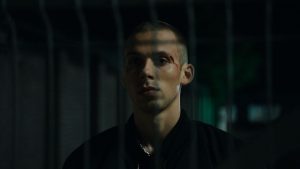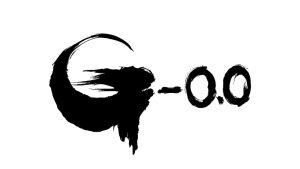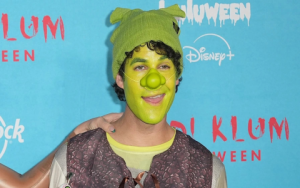
Cinema can “preserve history, influence mindsets, and provide a space for reflection and escape,” Cambodian auteur Rithy Panh (Graves Without a Name, Exile, Meeting With Pol Pot, Everything Will Be OK) said when he was unveiled as the surprise jury president of this year’s 78th edition of the Locarno Film Festival.
The long-time documentary chronicler is best known for his work about the 1970s Khmer Rouge genocide in Cambodia, which saw his parents, siblings and extended family perish of starvation and forced labor. Panh escaped to Thailand and then to France, where he discovered filmmaking.
In 2013, his The Missing Picture saw him debuting the aesthetic mixing clay figurines, archival footage and first-person narration that became his trademark. The movie ended up winning the Un Certain Regard award at the Cannes Film Festival and earning an Oscar nomination in the best international feature film category.
Panh is “one of contemporary cinema’s most courageous and consistent defenders of artistic freedom and an indefatigable champion of the power of historical truth,” Locarno said when revealing his appointment as jury head. “Since 1994, his feature films have been acclaimed around the world, giving voice to those whose lives were destroyed through horrifying state violence.”
Giona A. Nazzaro, artistic director of the Locarno festival, lauded him as “an authoritative witness of our time,” adding: “His passionate search for truth, his anti-dogmatic approach, and his genuine commitment, as well as his capacity to move freely between the numerous forms of present-day filmmaking
Before taking on his jury duty at the Locarno festival, which kicks off on Wednesday, Aug. 6 ans runs though Aug. 16, talked to THR about his past and current work, the impact of social media and AI, the importance of the theatrical experience, and why he wants to pick up a Super 8 camera next.
What are you working on right now? Any new film in the works, maybe?
I start reading now and searching for information, maybe looking back at the list of ideas to see what idea is now possible to work on. I am also working with some young artists on a photography exhibition in November. And I’m reading the latest version of the book I wrote with Christophe Bataille [The Elimination: A Survivor of the Khmer Rouge Confronts His Past and the Commandant of the Killing Fields], which takes time.
Do you expect your next film will be similar to your latest, Meeting With Pol Pot, and a continuation of your past work or quite different, like Everything Will Be OK, in which nimals enslave humans in a takedown of totalitarianism, surveillance, and excessive capitalism?
I don’t know. That one was different, talking about capitalism, the environment, etc. I have always mixed things up between work on the Khmer Rouge and also other work. But it was a choice that I put more time on the Khmer Rouge work. But now it’s maybe the last 10 years or 15 years of my life. I don’t want to be that director who still shoots at 100 years. That’s really crazy. Maybe I wish to enjoy cinema more now. I’m teaching, too. You learn a lot when you are in contact with young film directors. I try to discover them and have an exchange with them. Now, how people produce, how the new generation does thing is different and how they observe the world. And at the same time, I like teaching my students with classic films, because they discover things. The idea is that we can be free with cinema, and we can bring people with us.
You mentioned freedom. You have long seemed free from genre restrictions, mixing documentary and fictional elements and the like. Can you talk a bit about that?
It’s amazing. When I made The Missing Picture, the film got nominated for the foreign-language film Oscar, not for documentary. But still, people used to call me the guy who makes documentaries. But it’s not really true, because I am not thinking too much about whether something is fiction, documentary or more. It’s just my vision of the images and how to tell a story with images.
Now, people make films [or series] for social networks that are three minutes [long], exactly the time between two stations on the subway. I’m very interested by this kind of new narration, but it’s so stupid. It’s three minutes and always the same story. It’s cinema influencers and not cinema. For me, it’s good to to go to festivals sometimes to have a meeting with cinema and wait for something that can make me cry or make me laugh or make me sad, whatever – but something that moves me.

How do you approach the role of jury president in Locarno?
I’m a little bit afraid of festivals. Why? Because you have to judge things. I don’t want to say this one is better than that one. I’d create a prize for everyone. I’m a filmmaker, so I respect you a lot when you shoot a short [or feature]. It’s so hard to make a film. I don’t know if I didn’t sleep well at night, maybe I cannot follow one film. We have a few people on the jury, and maybe someone will have to explain the story of a film to me. And if one film comes from another continent, how can I fully understand all of it? The strongest films are universal. You can understand because you fear something. There is this humanity, dignity, freedom.
Your work has often explored trauma, especially historical trauma. How do you see cinema helping people confront and work through trauma?
Probably, the cinema work will be harder now because there are fakes with AI, so artists will need to be very cautious about where and how we research. With trauma, of course, culture in general can do something, because it can gather people around to talk about a painful event or something like this. Cinema also brings you a moment to breathe, happiness, you can dream, you can love. We are so under pressure everywhere, with daily life, work, all that’s happening, amplified by social media. And we need something to breathe. We need space. We need to watch and hear. We need physical sensation. A close-up must be a close-up on the big screen. It’s not the same on your TV screen.
But can cinema repair the world or can it save the world? No, we cannot save the world. We need to save ourselves.
You are a role model for various filmmakers. Do you have any cinema role models, or anybody who you feel influenced your work a lot?
Many, many, many. I knew the cinema when I was very young, because my neighbor was a filmmaker. But I was a child, so I was not prepared to make films. When I went to cinema school here in France, I knew nothing about cinema history. But they gave us an ID card so that we could go watch films for free. So I spent a lot of time in theaters to discover film, and they also had a videotape library. I watched Andrei Tarkovsky and started watching a lot of Russian cinema. I also love the great work of [Kenji] Mizoguchi, [Akira] Kurosawa, and, of course, [Ingmar] Bergman and [Aki] Kaurismäki and [Krzysztof] Kieślowski.
But maybe the best one for me is [the late low-budget French filmmaker] Chris Marker. Maybe not in terms of filmmaking, but when I have difficulty with shooting or editing, I think: “Hi, Chris, can you help me?” And I hear him: “Don’t worry. Go test! Don’t worry. Be free. Don’t respect the script. Change the pace of the sequence.” I never met him, but he is very strong for me, like a saint of cinema. Saint Marker.
Is there anything else you would like to mention?
Images and sound are very complex. When cameras can come into every hand, it’s good in one way because everybody can record pictures. But also, images can become more and more banal.
I have a project. I want to go back to Super 8. As a very young filmmaker, I made a Super 8 movie. And I want to go back to Super 8. But it’s very expensive – 100 euros ($118) for [a film roll of] three minutes. It’s interesting because you cannot shoot like when you use your phone. You need to think a little bit. I have bought a camera now. So I will try one or two cartridges to see what happens. I would like to find again my first love or maybe the same sensation.
I would like to find something more innocent, more elegant, more poetic. And I realized I shot too much with the digital camera, so I want to go back to something more basic.
#Rithy #Panh #Interview #Cinema #Cambodia #Locarno #Jury #Super #Plans






